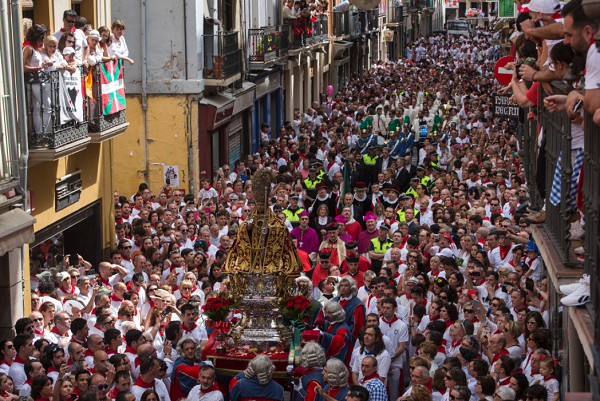Columbus Day 2016: What Is The Day Of The Race? Latin America Celebrates Día De La Raza Instead Of Italian Explorer

Every year on Columbus Day, Americans celebrate Christopher Columbus’ first steps on land in the New World on Oct. 12, 1492. The holiday, which was first established in 1937, will be recognized in the United States on Monday. However, due to the Italian expolorer's enslavement and mass murders of thousands of native and indigenous groups he encountered during his voyage, many Spanish-speaking countries and communities will not honor Columbus day, but instead, will celebrate Día de la Raza, or Day of the Race.
The alternative holiday celebrates the Hispanic heritage of Latin America and honors many of the countries that were conquered by Spain and other European explorers. During the Day of the Race, many Spanish-speaking countries like Argentina, Colombia, Ecuador, Chile, El Salvador, Honduras, Mexico, Costa Rica, Nicaragua, Venezuela, Uruguay and plenty of others will recognize the people, traditions and cultures that were wiped out because of Columbus’ colonization.
The Day of the Race recognizes more than just the bloodshed and elimination of the cultures and groups that were massacred during Columbus’ colonization of the Americas. The holiday also serves as a moment for Hispanic and Latin countries to reflect on the current challenges indigenous people in various nations are facing still to this day. Nearly 13 percent of Mexico and Latin America’s population consist of indigenous people, according to the International Work Group for Indigenous Affairs.
Unlike the U.S., where Columbus Day is celebrated on the second Monday of October regardless of the date, the Day of the Race is always specifically celebrated on Oct. 12. However, since 2002, Venezuela has celebrated the holiday on Oct. 11 after the country’s president renamed Día de la Raza to Dìa de la Resistencia Indìgena, or Day of Indigenous Resistance.
Meanwhile in Spain, the holiday – which is still celebrated on Oct. 12 – has been changed to Día de la Hispanidad (Day of Hispanity) or Fiesta Nacional de España (National Day of Spain). The holiday recognizes Spain’s history, monarchy and military, and is usually celebrated with a parade in Madrid.
While some states in America have swapped out Columbus Day with Columbus Day Native American Day, there are some areas that celebrate the Hispanic culture and influence during National Hispanic Heritage Month in the U.S. with Hispanic Day, including New York City, which recognizes the holiday with the annual Hispanic Day Parade. The 2016 parade will take place on Sunday.
© Copyright IBTimes 2025. All rights reserved.






















